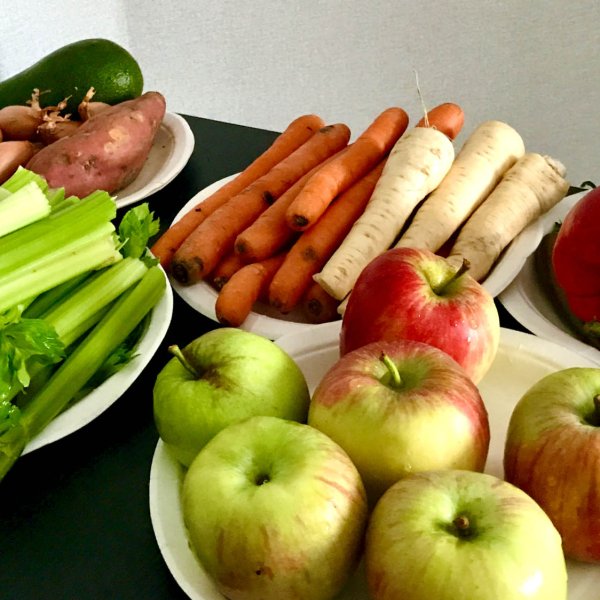JUMP TO
In this article you’ll learn why it’s important to change your habits and the best ways to trigger positive change. I’ll briefly explain what change means and I’ll share with you my tips on how to change your habits and how to keep it consistent.
The trouble with change
We all heard someone saying something along the lines of “I’ve always been like this. It’s in my family genes, I can’t change who I am.”. On the opposite side you might have heard someone saying: “I’ve changed my life completely. It’s a new me.”
The big word here is “change”. Some people are doing it while others can’t even imagine it in their mind. So how do we trigger change? Is this even possible for everyone? Can we change our unhealthy lifestyle into a healthy lifestyle, after living a big part of our life in the same (unhealthy) routine? Can we change disease promoting habits with healthier habits?
Change is a powerful concept. It means becoming or doing something completely different from what you’ve been used to. Change means a shift from the “old you” to the “new you”, a shift from something that you’re familiar with to an unfamiliar way of thinking or doing things.
Changing is hard, but it’s not impossible and in this article I’ll show you a few simple ways to approach it.
The reason for change
I’d like to think that we change due to joy and inspiration but, unfortunately we’re most likely to change due to a certain trauma in our lives. What happens is: we wait for suffering to hit us before we acknowledge that we need to change. Even when trauma hits us, some of us choose to change and some of us are still afraid to change.
The rock-bottom is the ultimate motivator, the wake-up call if you will. A crisis such as a disease, a loss of a close person, a tragedy or an accident, these are scary events because they come with the fear of losing our lives. And that’s the catalyst that can trigger change. Then all of a sudden our whole world turns upside down: health, family, social relationships, career, etc. That’s when we realize that we need to change something.
Therefore, it’s most likely that great change will be triggered by pain. It may be physical or emotional, but there will definitely be some kind of suffering involved. Otherwise our mind will keep us from changing, that’s the real truth why we don’t accept change easily. Our mind is designed to keep us “safe” and in the same loop, no matter how good or bad it may be for our health.
The process of change
Before you start the process of change, you must first understand what to change. Start by being honest with yourself, acknowledge the things that aren’t working for you, and the fact that your problems will not go away by themselves.
Those extra kilos? They won’t vanish just like that, not if you continue to fill the shopping cart with the same foods, at the same supermarket. Not if you do the same things, go to the same places, think the same things, or eat the same foods that made you sick in the first place.
There’s a reason for all your health problems and that is your unhealthy lifestyle, made up from all the build-up habits you cherish so much every single day. All your daily actions, all your thoughts and even your emotions have a habit-system routed in the mind.
Let’s summarize the process of change:
- Recognize the routine of unhealthy behaviors. Be your own observer and recognize what’s wrong.
- Stop the unhealthy lifestyle and begin a healthy life.
- Replace those old unhealthy habits with new healthy habits.
The process of change sounds like a simple 3-step process, but in practice it may take you months or even years, depending on your drive or willingness to move from the old life to the new life.
So before talking about practical advice, let’s discuss a bit about habits.
What are habits?
The notion of habit is a multidisciplinary topic among philosophy, psychology and neuroscience. It has been studied from different angles such as human behavior, cognitive process, habits as learning, habits as practice, good and bad habits or neutral habits.
A habit refers to a pattern that an individual has throughout his lifetime. These patterns are automatic routines of behavior, such as actions, beliefs, thoughts and emotions. Habits are created through long-term repetition and exposure, being rooted in the subconscious mind. This means that habits are unconscious, they’re the autopilot mode of the brain.
A habit is the over and over again process, doing and thinking the same thing or action every day. On top of this, old habits are harder to break down because they are hard-wired in the neural pathways, where the habit-info is persistent due to the long time repetition.
However, our brain is also flexible, and we can use this flexibility to adapt and change. Our brain can change and adapt because of new experiences, this phenomenon is known as brain plasticity.
The subconscious mind can be reprogrammed with new habits, this process is called unwiring the old system or rewiring the new system. The trick to reprogramming the brain is to repeat your new desired behavior, action or thought, until you’ve overwritten the old habit with a new habit.
Sounds simple enough, right? Well … there’s more.
The mind can be reprogrammed towards creating a new healthy autopilot system, but we must do it through a conscious process of habits. Therefore, the process of breaking bad habits is not always easy to implement but is neither impossible. It requires patience and a lot of conscious hard work, but it can be done and I’ll show you how in the next sections.
How to build new healthy habits
Before anything, building new healthy habits must always start by identifying those unhealthy old habits that you want to change. The key is not to ignore or erase the old habit, but to identify the pattern, identify the trigger of that behavior and understand how to act on it.
Here are my 5 best tips for helping you build the initial discipline that you need to get started with change.
1. Self realization
Building a new habit should always start with a few simple questions. Without this reflection and acknowledgement of what you need to change (or at least improve) there won’t be anything further to build upon. Why change something if there’s no problem, right?
You can do this acknowledgement by asking yourself a few honest questions. Here are a few of my favorites for this self-reflection part:
- How in shape or out of shape are you? (your health)
- Do you have / do you lack energy throughout the day? (your health)
- How successful / unsuccessful are you? (your work)
- Do you feel inspired or uninspired? (your work or life)
- How happy or unhappy are you? (your life)
- Do you have an ideal image of yourself? (your life in general)
Honestly ask yourself, “Who is the person that I could become, if I’ll change?”
2. Stick to your new habits
Many people are trying to change but are unsuccessful in the short term and simply give up. Why is that? Why do people quit the process of change? I believe it’s because they fail to understand how their old habits are structured and try to do too much too soon.
Psychology says that it takes about 3 weeks to build a new habit and about 3 months to build a lifestyle. But in real life things can vary quite a bit from one person to the next; we always need to take into consideration the personal context, different habits, energy and stress levels, health condition, habits to change and even one’s desire to change.
All of these factors are likely to influence the time it will take you to form a new habit. That’s why my advice is to commit to your new habit for at least 30 days before assuming that you’ve failed. Stay consistent and you’ll see the results!
Best ways to stick to your new habits
Setup small daily goals that you can’t fail. Start by doing the same thing every day in order to gain consistency. It may look insignificant per day, but multiply it by 365 days per year and it becomes a habit.
For example:
- “After work, I will change into my workout clothes and walk for 15 minutes”. That’s it!
- Want to start running in the morning? Start small … for the first few days, after you wake up, change into your sport clothes, change into your running shoes and go by the door. That’s it for a few days! Next step will be to go outside and run for a few minutes.
Setup weekly milestones with a progressive approach. Don’t set up overwhelming goals that will be hard to follow and please don’t make things look impossible. Why? Because right now you’re in the learning phase and you’re lacking the experience. Instead of making it hard for yourself, make it fun and challenging. Setup yourself weekly milestones that you can later transform into monthly milestones, and later into yearly goals.
For example: “Every weekend I’ll prep a new healthy recipe”.
Have patience, you’re building something long term. Be patient and stay consistent at a sustainable pace. Don’t get discouraged if it takes you more time than you’ve initially planned for, after all you’re building a new life and it will take time. Yes, you want to be hungry in your journey to change, but pushing it too much will only make you tired, increasing your chances to fail.
3. Never miss twice
You must understand that creating a new set of habits takes both time and a conscious effort. It’s a matter of learning something new and repeating it to perfection. At the beginning there’s a big possibility that you’ll slip and that’s totally ok. What isn’t ok is not being aware of this or ignoring it.
Understand when you fail and get back on track immediately. It may be a meal, a workout, a meditation practice or anything else. Make sure you don’t fall into the trap of procrastination. Right now it’s more important to stay consistent and not miss a micro-commitment than to hit a specific monthly milestone.
4. Create personal accountability
In order to make sure that you’ll actually stick to your new routine, you must track your efforts and measure the results. Learn how to look back and check your progress in order to actually “see” it. Make sense, right? Look at the lessons you’ve learned and at the long path you’ve left behind. It will empower you even more because you’ll realize that you’re on the right track. It’s rewarding already, see?!
Here’s how to create personal accountability
- Keep a journal. It doesn’t have to be a daily journal, it can be a weekly one. It can be on paper, on your computer or even an audio recording on your phone. The important thing is to record and look back at the events in your life, this way you’ll be able to measure your progress and reflect upon it.
- Track your daily walk or workouts. Make sure to check those stats from time to time. This way you’ll gain both confidence and stamina, plus walking, running or exercising are great ways to boost your mood and relieve stress.
- Take photos to measure your progress. If you want to change your eating habits, take photos of your plate. If you want to change your body, take photos of yourself. This process will help you become more aware of your current situation, your choices and also your progress. Start by taking photos with your phone’s camera, you don’t need fancy equipment or fancy setups.
- Share on social media. Post your progress on social media, and never underestimate the power of social approval. Sharing your food photos, the length of your last walk, photos with you in the city without a car, your workout schedule, you at the gym, etc, all of these are great ways to create personal accountability. Keep in mind that you’re not competing with others, your goal is to take responsibility and acknowledge your progress.
5. Build your new identity
Hopefully by now you realize that changing your habits requires much more than just setting up some goals. It means changing your mindset because this can influence your day-to-day life, your choices, actions, beliefs, etc.
Let me say it again: changing your habits means changing your mindset.
But how do you stay on track long term? The answer is simple: people! You have to surround yourself with people that uplift you, people that inspire you to be better.
Look for people that share the same experiences and struggles as you do. They may have found ways to overcome those struggles, and you can learn a lot from their solutions. Search these people on social media, go to events and meet them, read books, listen to audio books or podcasts, immerse yourself in their content, learn from their experiences.
Takeaway
- Your life is a sum of daily habits (actions, beliefs, thoughts and emotions).
- Habits are rooted in the subconscious mind, they are the autopilot system of our brain.
- Changing your daily habits means changing your life (to some extent).
- Change must start with self realization and acknowledgment of what it is that’s not working in your life.
- Change is the process of unlearning the old and learning the new.
- The human brain never stops adapting and changing in response to learning.
- Setup small daily new habits so you won’t fail them.
- Consistency and repetition are the key in making the new habits stick on the long term.
- Always look back and check your progress in order to actually “see” it.
- Search for people that inspire you, people that used to have the same struggles as you have right now.
Change is not impossible, but it definitely requires a lot of patience. At the end of the day it’s all about how important your goal to change is for you, as an individual. It’s about the daily choices you make as a series of micro-commitments.
My advice for you is to make conscious decisions and stay patient, because in order to change you need to play the waiting game. As Aristotle once said: – ”We are what we repeatedly do. Excellence, then, is not an act, but a habit.”
I’m curious to know how you feel about change? What’s your experience with changing unhealthy habits? What are your best tips? Let’s discuss in the comments below!
Resources
- Dr. Joe Dispenza, Can you change your brain by thinking differently?
http://drjoedispenza.net/blog/can-you-change-your-brain-by-thinking-differently/ - Sarah McKay, Neuroscience Insight: How to Break Bad Habits.
http://chopra.com/articles/neuroscience-insight-how-to-break-bad-habits - James Clear, Identity-Based Habits: How to Actually Stick to Your Goals This Year.
http://jamesclear.com/identity-based-habits - José Lombo and José Giménez-Amaya, The unity and the stability of human behavior. An interdisciplinary approach to habits between philosophy and neuroscience.
http://www.ncbi.nlm.nih.gov/pmc/articles/PMC4127468/




















